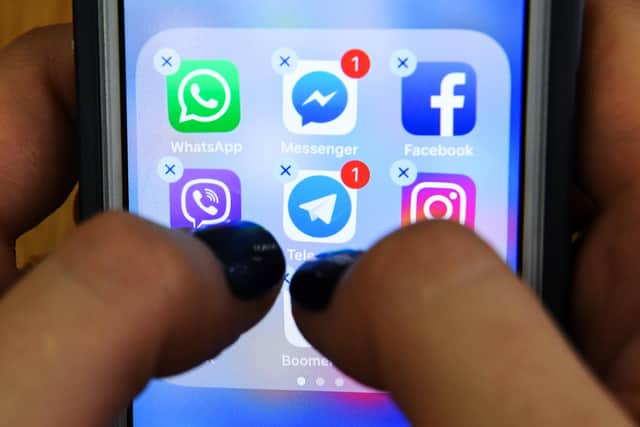Online threats to our children are sometimes closer to home than we think - Tom Wood


Looking at pictures of Mhari you wonder what persuaded such a smart young girl to meet a complete stranger in such circumstances. The answer – social media and particularly the norms of messaging apps designed specifically for teenage dating.
Fatalists will point out that such tragedies are timeless, social media or not. But the truth is that Mhari would never crossed the path of her killer had it not been for social media. It is also unlikely that had they met in more conventional circumstances and got to know each other, that he would have treated her with such utter disregard.
Advertisement
Hide AdAdvertisement
Hide AdIn many ways of course, it is too late. Social media has now infiltrated our lives, bringing enormous benefits and dangers for the unwary and especially the young. The dangers are grave, especially in the area of sexual crime and harassment.


A recent report from an online helpline for children revealed hundreds of instances of sexual harassment, many of which were serious enough to report to police. OFSTED has also recently published a larger piece of research with the same conclusions. Again social media played a prime role.
It is serious, peer pressure and the onslaught of online porn is insidious. But we must beware.
It is easy to frame this new outrage as further evidence in the gender war – the case against men – but it is much more complicated than that .
A few years ago I was involved in organising a survey of 14-year-olds at a large secondary school. There had been reports of sexual predators in the area, so we sent out an anonymised questionnaire seeking information .
The response was unequivocal, most of the girls and a good number of the boys reported incidents of what they perceived as sexual harassment. Not by older men or strangers but by their peers, their classmates or the boy next door.
And once again there was seldom any personal contact, the virtual world of social media was the conduit.
Closer examination revealed some serious cases, indecent images sent or requested was common, sexual bullying was widespread. But other reports were more difficult. Some seemed more like inept attempts to meet a girl or boy they fancied. Courtship rites of passage but without the norms of personal relationships. For some, their only crime was being young and gauche in the unforgiving world of social media.
Advertisement
Hide AdAdvertisement
Hide AdWe must be careful as we pick our way through this social/criminal minefield.
We must ignore the simplistic voices who would cast this as a simple – girls equal victims, boys equal predators. Our young people deserve better. We need to help, not stigmatise.
As for social media – and particularly kids’ chat sites – they deserve the same health warning as carried on a packet of cigarettes.
Tom Wood is a writer and former Deputy Chief Constable.